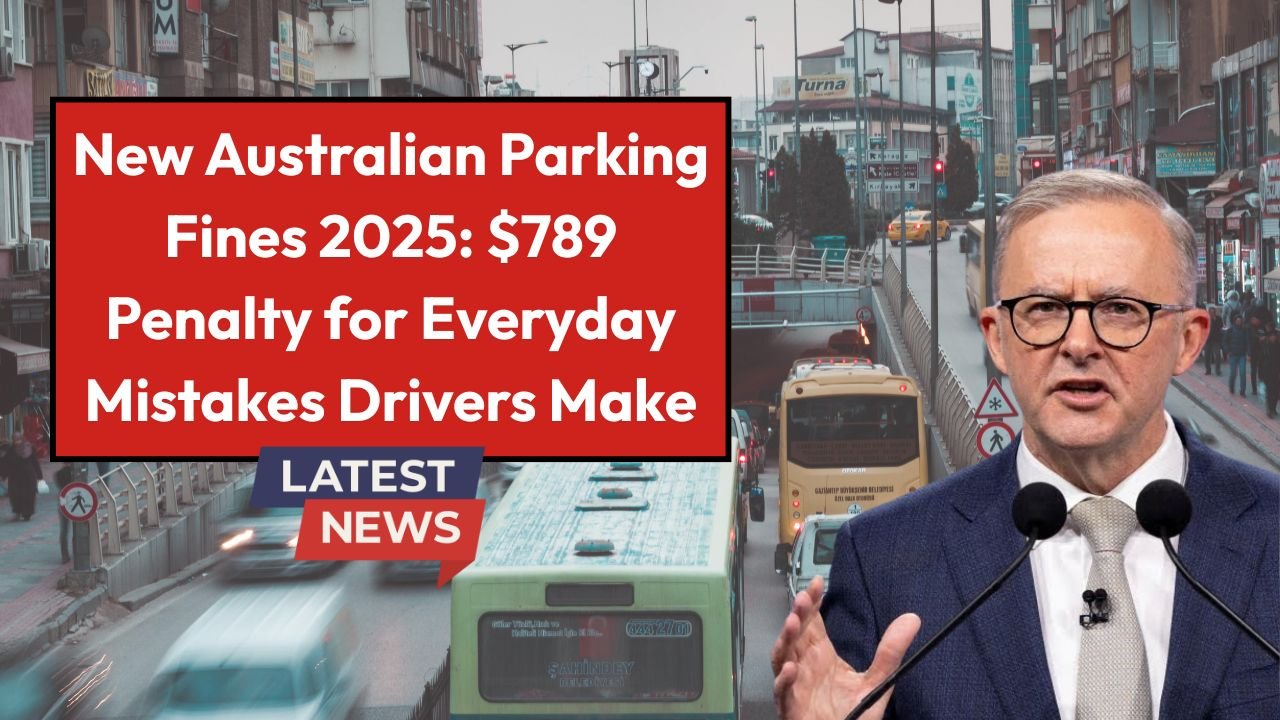Parking in the wrong spot could now cost Australians a whopping $789 fine in 2025. What was once a $477 penalty has been hiked by more than 65%. This new rule came into effect on 1 January 2025, aiming to reduce congestion, stop misuse of road shoulders, and improve safety for all road users.
If you’re a motorist in Australia, here’s everything you need to know about the new fines, why they were introduced, and how you can avoid getting caught out.
Why the Fine Jumped to $789
The Australian government increased penalties for illegal parking to address some serious issues:
- Congestion: Cars parked in no-stopping zones or on road shoulders block traffic flow.
- Safety hazards: Illegally parked cars often obstruct emergency vehicles, buses, cyclists, and pedestrians.
- Fairness: Some drivers misuse restricted zones, creating unfair advantages over law-abiding motorists.
This change is not just about revenue—it’s meant to push drivers toward legal parking spaces, park-and-ride services, and official parking zones.
Common Parking Mistakes That Could Cost You $789
Here are some of the most common errors motorists make every day that now come with heavier penalties:
Parking in No-Stopping or Clearway Zones
These zones exist to keep traffic flowing. Stopping here, even for “just a minute,” is now a high-risk gamble.
Blocking Bus Stops or Taxi Ranks
These spaces are reserved for public transport. Misusing them disrupts schedules and causes frustration for passengers.
Stopping on Road Shoulders
Shoulders are meant for emergencies. Parking there clogs escape routes and increases accident risks.
Ignoring Loading Zones
These are strictly for commercial vehicles loading/unloading goods. Using them as a free parking spot is a quick way to get fined.
Measures Taken to Enforce the New Rules
Australian cities are stepping up their enforcement with technology and patrols:
- Patrolling officers with mobile video cameras scanning license plates.
- Police vehicles monitoring busy areas for shoulder misuse.
- Smart parking apps helping drivers find available legal spots in real time.
These measures aim to make illegal parking less tempting and legal alternatives easier to access.
Impact on Australian Cities
While penalties alone may not erase congestion in cities like Sydney, Melbourne, or Brisbane, they can:
- Reduce reckless parking.
- Keep bus lanes and emergency routes clear.
- Encourage drivers to plan ahead for legal parking options.
Still, urban traffic will require more than fines—better public transport and smarter parking infrastructure remain long-term solutions.
Tips to Avoid a $789 Parking Fine
- Always check for parking signs before leaving your car.
- Use official parking apps to find legal spaces nearby.
- Leave road shoulders clear unless it’s an emergency breakdown.
- Respect loading zones, taxi ranks, and bus stops.
- If in doubt—don’t park there. It’s cheaper to spend 5 minutes finding a legal spot than paying nearly $800.
FAQs About the New Parking Fines
1. When did the new $789 parking fine start?
The higher fine came into effect on 1 January 2025.
2. Is the fine the same across all states in Australia?
The amount may vary slightly depending on the state, but the federal guideline sets $789 for certain violations.
3. Can I appeal a parking fine?
Yes. If you believe the fine was issued unfairly, you can lodge an appeal with your local council or traffic authority.
4. Are there discounts for early payment?
Some states offer reduced penalties for early payment. Always check the notice details.
5. Will more fines increase traffic safety?
Authorities believe so. Clear zones reduce congestion, allow emergency access, and improve overall road safety.
Final Thoughts
Parking may seem like a small part of driving, but in 2025, it just got a lot more expensive to get wrong. The new $789 fine is designed to push drivers toward responsible parking habits and reduce the chaos caused by illegal stops.




